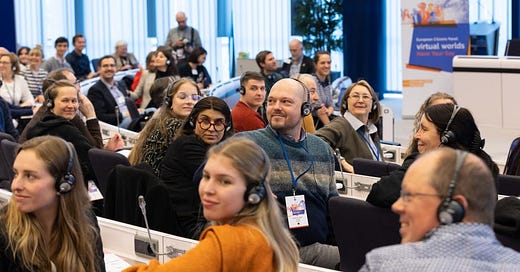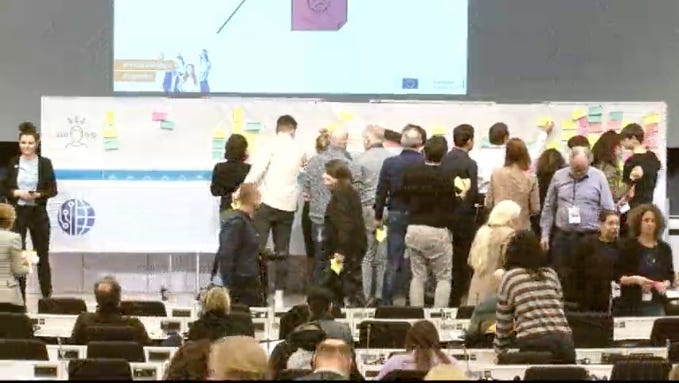What are citizens’ panels?
The idea
Citizens’ panels are like big focus groups. They inform people about a topic and ask for feedback. The idea is to bring ‘ordinary citizens’ closer to the EU decision-making process so they can have a voice and impact on policy. A previous panel on food waste garnered 23 recommendations to support the Commission’s legislative work.
The set-up
150 randomly selected citizens from all 27 Member States who represent the Union’s diversity regarding geography, gender, age, and socioeconomic background—but a third of the participants must be 16-25.
3 sessions across 3 weekends. Session 2 takes place in March; session 3 in April.
Missions Publiques, a specialist agency, ran the panel and programme.
The programme
Day 1: Friday
Half of the audience went to an exhibition to try metaverse products for themselves. The others stayed in a plenary session. Then both sides switched.

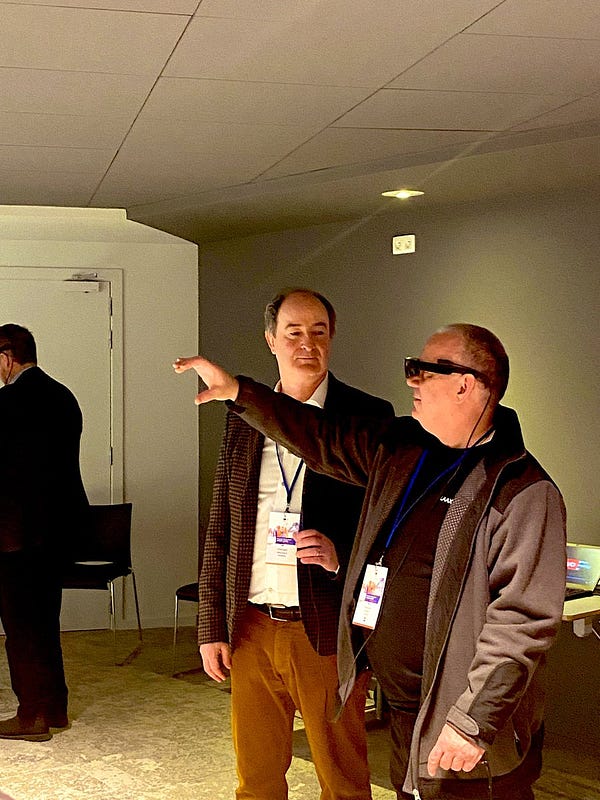
The organisers then asked the audience to place on a timeline—from 1992 to the present—three positive (yellow/green post-its) and three negative (red post-its) experiences of the digital world.
The result was anticipated, with the follow-up commentary almost verbatim in both sessions, but the evidence was damning:
Wider internet uptake in recent years—and the cohort under 26s—explain the concentration of experiences on the right. The second group was later in the evening, with fatigue possibly affecting their enthusiasm (and outlook.)
Then the audience shared their stories. Positive themes included rediscovering old friendships, meeting new people online, and using AI for work; negative accounts recalled unreliable connections, cyberbullying, and online fraud. Favourites:
Welcome to web3. One person spoke of their struggles to navigate the world of scams: “Really, I even thought this [citizens’ panel] was a scam!”
Asocial Odyssey. “In 2001, I lost contact with some of my friends because we did not use social media.”
Unintended consequences. “The technology that connects us actually makes us feel more separated.”
Preach. One member bemoaned the patchy mobile internet coverage in Brussels, having relocated many years ago.
Digital native. A younger member said it was “Difficult to strike a balance between real and virtual world.”
Speaking from the heart. Someone closed the responses with this wisdom: “When you look at someone in the eye, and someone looks back, you can see to the heart of people. If you know someone’s heart you are unlikely to wage war on them.”
Day 2: Saturday
The second day consisted of smaller workshops and was not made public. Participants reflected on the day before and considered possible digital utopias and dystopias.

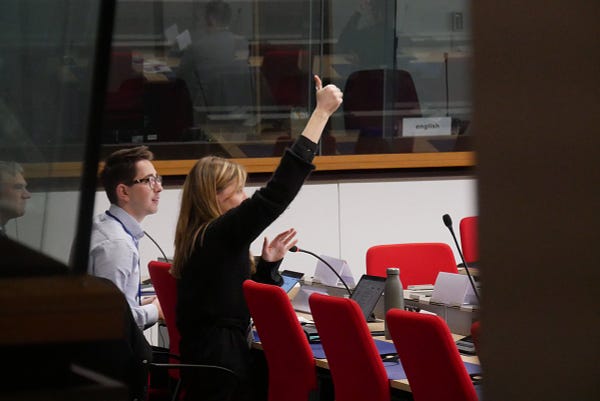
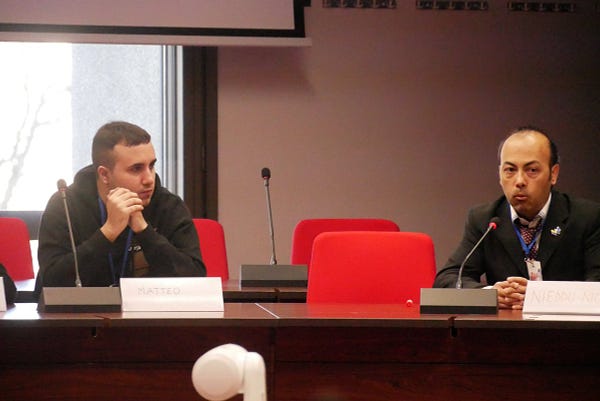
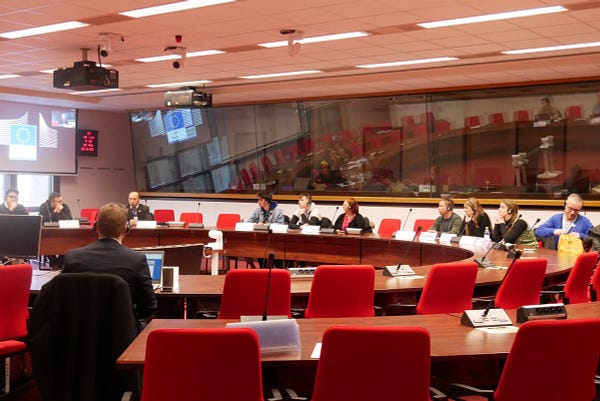
Day 3: Sunday
Sunday’s atmosphere was raucous and indicated how well the organisers galvanised the group outside of the programme.
The day opened with reflections from the day before. One participant said, “My phone battery was full because I was so captivated!” Another participant shared that they had recently visited the Bruegel Room in Vienna—but when trying out the VR version on Saturday, reflected “It was amazing in VR; if I saw this I wouldn’t have gone [to the real one].”
The programme opened with speeches from experts. One of the most compelling was Sara Vogl, a metaverse creator and artist, who turned up as an avatar and showed off both the technical capabilities of virtual worlds (including full body tracking) and also the social value of it.
A comedy improvisation group performed between each topic; a bizarre entertaining feature intended to keep the audience engaged. One performance involved the actors flapping imaginary wings and arguing about who should own honey.
Finally, the audience gave feedback on the day, with the programme running over. This was a shame: The few responses given were very inciteful; many others were possibly discouraged (anyone who’s been in an overrunning Zoom meeting knows of the pressure to not respond to “any other business.”)—more on this later. Favourite responses:
A laughing matter? One participant said, while they did not mean to criticise the improv troupe, it was “misplaced” here. Another praised it, “I enjoyed [the improv]!”
Still scratching. An audience member said they were “disappointed” by Sunday’s programme, “We collected so many questions, and they were only dealt with at a surface level.”
Vibe. “I think it’s amazing we are all here, and speaking different languages. Nothing to do with virtual worlds, sorry!”

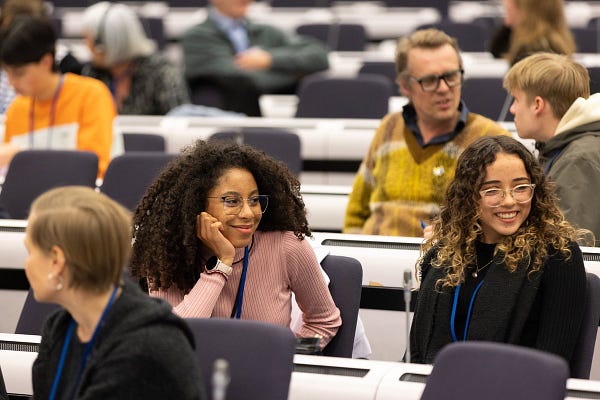
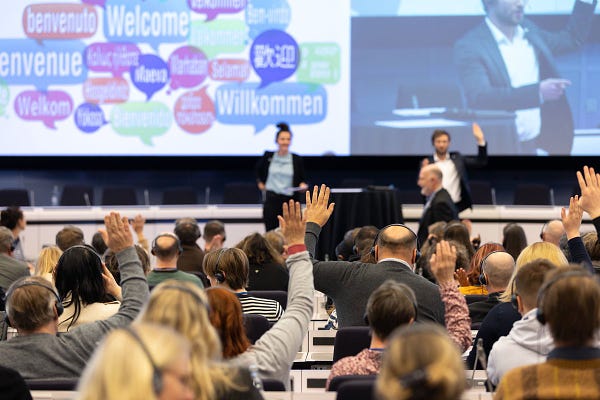
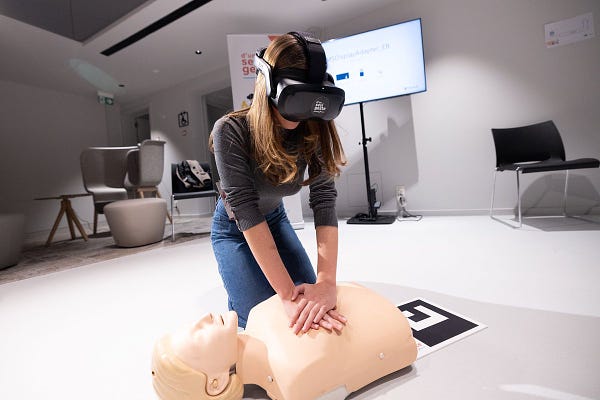
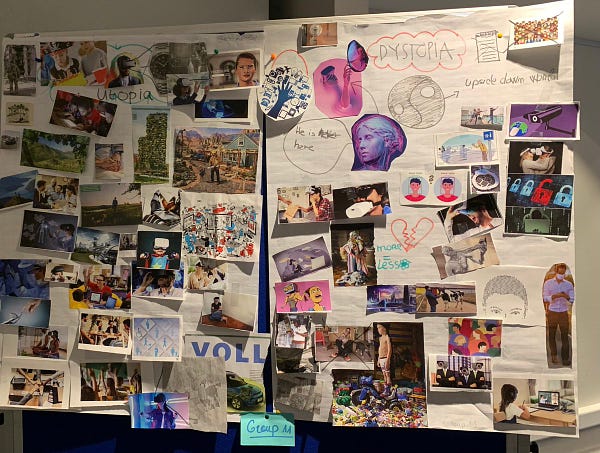
Analysis
The good
Innovative. A leading experiment in democratic policymaking and invigorating to hear citizens input and experience on a pressing initiative.
Transnational. The session was live-streamed, with live-translation for 24 languages. All participants had the chance to speak in their own language.
The interpreters deserve special acclaim for enthusiastically narrating the improv sessions.
Lively audience. The organizers did well to educate and motivate the participants. The best part of the session was hearing directly from the audience.
The bad
Making the glove fit
The most important part of citizens’ panels to get right is the first bit: explaining the topic to citizens. For a fair study, it’s best to show and not tell. Unfortunately, the Commission loaded the die— and it showed.
A group of knowledge experts were responsible for educating the participants. After a previous panel, Citizens Take Over Europe, an NGO that promotes citizen-centered initiatives, criticised the Commission’s approach:
The ‘knowledge committee’ that informed the process was set up by the same institution that is supposed to follow up on the outcome. In consequence, most of the experts that provided input were broadly aligned with the European Commission’s initial point of view.
The EU repeated its error by including the head of the Commission’s metaverse work as a knowledge expert on this committee. The Commission then appointed the rest of the committee members to further stack the deck. And, in the end, several senior officials from the institution presented to the audience.
It’s no secret how the Commission feels about ‘Big Tech’ (spare Europe’s Big Telco). The Commission’s committee was tasked with preparing an information kit for participants in the weeks prior. It reads, “As tech giants invest massively in this new technology, we also need to be aware of the risks of abuse of power by a small number of major actors.” And later, “Companies particularly in North America… aim to enjoy first-mover advantage. The EU needs to steer the development of virtual worlds to make sure they are fair, safe and user-friendly for Europeans.”
When taking questions from the audience, the Commission official-turned-independent committee member rallied the audience, saying, “Big companies can’t just do what they want to do”—which takes as truth that they do. One of the Commission’s chosen experts then joined in with dystopian rhetoric, claiming the tech giants have a “monopoly on our imagination.” Unsurprising, then, one participant felt that audience questions were only “politically addressed.”
There are ongoing allegations of protectionism on both sides of the Atlantic, and it’s disappointing to see political agendas leak into this initiative. The panel would be more informative if policy is an output of deliberation, not an input.
Citizens’ panels should be impartial with bottom-up agenda-setting. The risk remains that the Commission will frame what should be an open debate, align citizens to the Commission’s original point of view, and miss the opportunity to see what citizens themselves think.
Through the back door
The Commission announced a metaverse initiative last September and shared little information since. Then, last week, their site published a flurry of materials about an upcoming citizens panel on virtual worlds—and that the first session would take place within a week. This surprise gave the wider public (including media, civil society, think tanks, academia) too little time to share and prepare.
Without the required attention, the citizens’ panel risks becoming a closed bubble; worse, a way for the Commission to bypass (more contestatory) input from civil society and use the session merely as justification to push their own agenda. It is unclear whether the Commission will stream the next two sessions—but it should.
The voices not (yet?) heard
There was a significant 15% gap in the audience: citizens under 16. It was disappointing not to hear from those who will have to contend most with the metaverse. Odd as it may sound to some to consult children on their own future, organisations like 5Rights Foundation and the Digital Futures Commission specialise in doing just this. Indeed, it is the only way to ensure governments respect children's rights. This cohort of digital natives could help inform policy for the metaverse natives of next-a-year.
There was also little consideration for how virtual worlds will impact vulnerable groups and those with disabilities, a subject of more immediate and pressing concern. However, this topic may yet feature in the following sessions.

